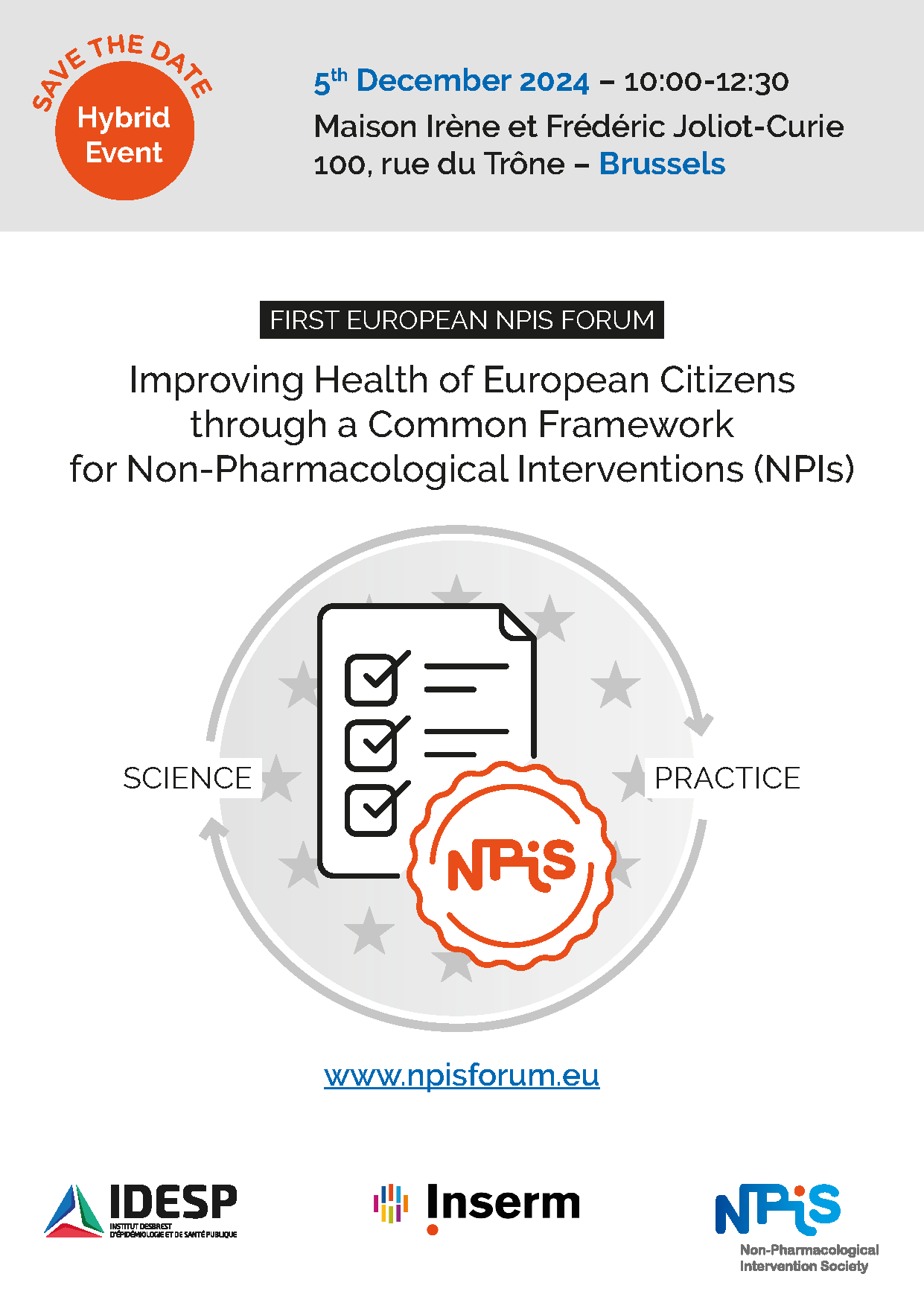


Improving Health of European Citizens Through a common Framework for Non-Pharmacological Interventions (NPIs)
Speakers
Prof. Iveta NAGYOVA
President of the EUPHASabine GOURGEON
Group Strategy ClarianeMarco MARSELLA (tbc)
European CommissionVlad Vasile-Voicolescu (tbc)
Member of the European ParliamentDr. Gianni FRANCO
Director for international relations of the Non-Pharmacological Interventions SocietyRussell PATTEN
Parkinson's Europe Director GeneralProf. Gregory NINOT
President of the NPIS, Associated Director of IDESP (INSERM, Montpellier)

Improving Health of European Citizens through a Common Framework for Non-Pharmacological Interventions (NPIs)
Non-pharmacological interventions (NPIs) have been mentioned by health authorities (WHO, 2003;
WHO-Europe, 2021; European Centre for Disease Prevention and Control, 2022; European
Commission, 2022) and many scientific and health societies, given their potential to improve health
and quality of life in the long-term, reduce healthcare expenditure and trigger behavioral changes.
They improve prevention and healthcare and complete biomedical treatments with the progress of
early diagnosis and systemic impacts of non-communicable diseases.
However, “fake health news” have spread rapidly in the past years, in particular online and since the
Covid-19 pandemic. It is therefore urgent to provide a European tool for the citizens (patients,
professionals and healthcare operators) to be identify Evidence-based NPIs. This will allow better
choice, engagement, traceability and possible financial coverage along the whole value chain.
Such a scientifically validated framework for NPIs has just been co-designed in France in a
transdisciplinary, inter-sectoral, participative and independent scientific study supported by
INSERM, co-constructed with over 1000 participants. This work resulted not only in the definition of a
perimeter of psychosocial, nutritional and physical practices to define NPIs as “an evidence-based,
effective, personalized, non-invasive health prevention or care protocol, registered and supervised by a qualified professional” (cf. French and English FAQ); most importantly, it produced a centralized European register of labelled, described, and codified practices that has just been launched in October 2024 in Paris: the NPIS Registry
The aim of this first European multistakeholder Forum on NPIs is to present the study and the science that led to the construction of the NPIs Registry in France and to explore the interest and feasibility of uptake and deployment at European level. It will hopefully initiate a roadmap covering the whole value chain from research to practice, in particular economical, regulatory, training, digital interoperability,best practices monitoring and dissemination aspects.
Meet us on December 5, 2024
Program
Welcome Coffee
Roundtable Discussion
Networking Lunch
REGISTRATION
Location
Coming from the Central station
Bus 38 to HEROS –Drop off at IDALIE –Walkto destination 1 min
Coming from the Midi station
Metro 2 or Metro 6 direction ELISABETH – Drop off at TRONE -Walk to destination 8 min
Coming from the airport
Train 2509 to DINANT –Drop off at Brussels Luxembourg station -Walk to destination 6 min
Coming from the airport
Bus 12 to BRUSSELS CITY –Drop off at Luxembourg –Walkto destination 6 min














